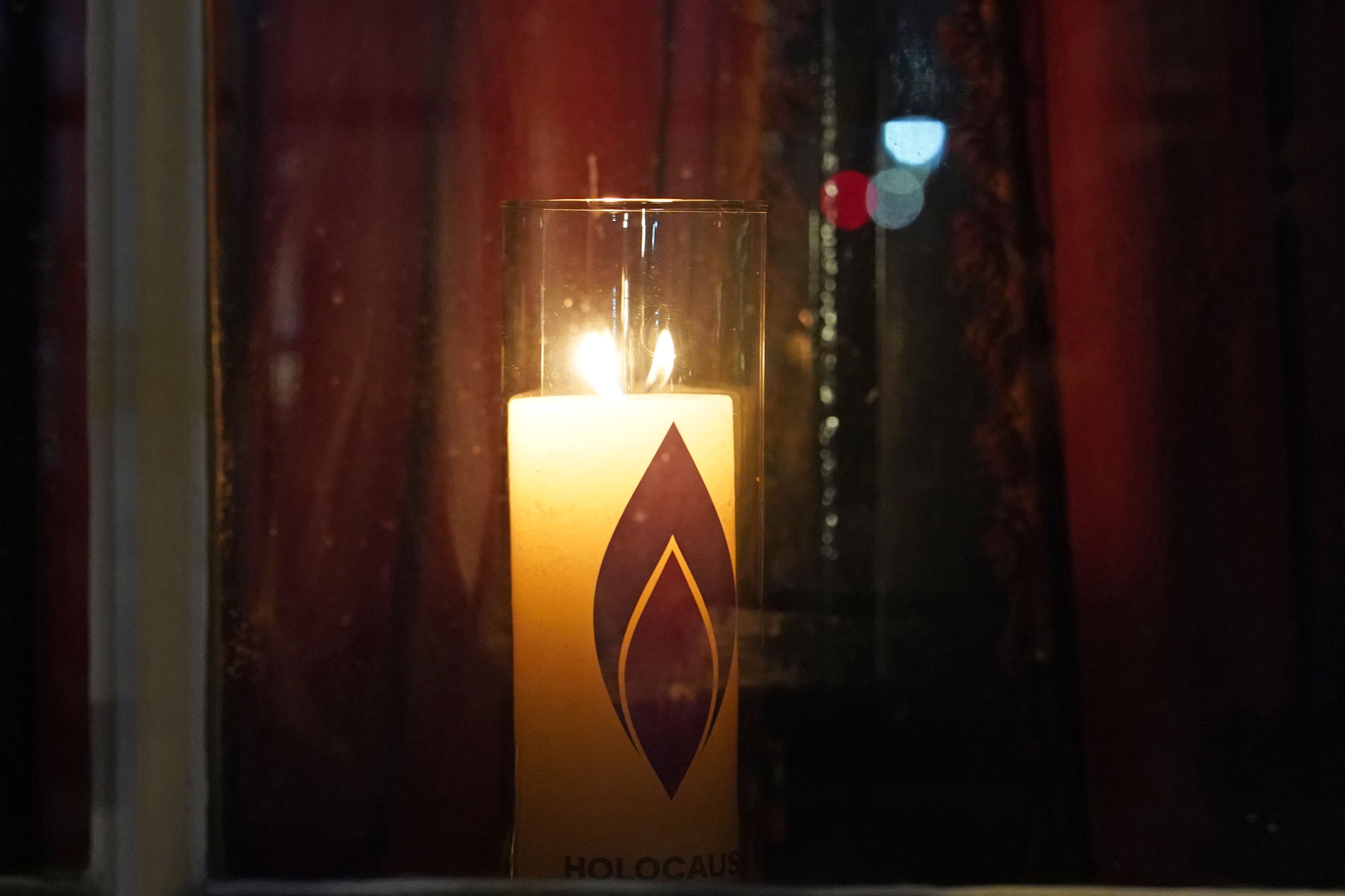Holocaust Memorial Day ‘difficult’ due to Hamas-Israel conflict – charity chief
Some memorial events will require tighter security this year, Karen Pollock from the Holocaust Educational Trust says

The chief executive of the Holocaust Educational Trust has said this year’s Holocaust Memorial Day will be “really difficult” against the backdrop of the Hamas-Israel conflict.
Karen Pollock said the “huge increase in antisemitism” since the October 7 attacks by Hamas on Israel means the Jewish community will mark the occasion with “heavier hearts”.
“It’s a difficult time, but that doesn’t stop us from coming together and recognising what was a seismic event in history whose repercussions are still felt today,” she added.
Ms Pollock said this year’s commemorations will be especially poignant because Holocaust Memorial Day on Saturday takes place “against the backdrop of a massacre”.
She told the PA news agency: “We’ve seen a huge increase in antisemitism ever since in this country, but also globally.
“It couldn’t be more blatant at the moment, whether it’s online but also on our streets.
“I say all of this, with pain in my heart, with concern for concern for our Jewish community, mindful that actually we all want a society where we believe in community cohesion and tolerance and getting along.”
There are additional security concerns this year because of a rise in the number of recorded antisemitic incidents, Ms Pollock added.
The number of antisemitic hate crimes recorded by many of the UK’s largest police forces jumped sharply in the weeks following the outbreak of the conflict.
Ms Pollock added: “There are some events that are having to have more security.
“It’s a difficult time, but that doesn’t stop us from coming together and recognising what was a seismic event in history whose repercussions are still felt today.
“I think we enter this with a slightly heavier heart.”
The raids by Hamas, which saw fighters break through Israel’s defences and rampage through several nearby communities, killed some 1,200 people, with around 250 taken hostage.
Israel’s offensive in response has killed more than 25,000 Palestinians in Gaza, according to the Hamas-run health ministry in the territory.
I really believe, and I think our survivors believe this, that the majority of people in this country are decent, good people who are horrified by the massacre committed by Hamas, who are horrified by what the Nazis did during the Holocaust
Asked about pro-Palestine protests which have taken place in recent months, Ms Pollock said: “I think that there are many people with good intent, who really want to see an end to the conflict and want to see peace in the region, as do I.
“That said, there are, sadly, people who are there in bad faith. There are placards being held up at protests which equate Israel with the Nazis, there are chants for an intifada, there is inflammatory language about Jews and Israel – and as a result, these protests have become a real source of concern for the Jewish community.
“But I really believe, and I think our survivors believe this, that the majority of people in this country are decent, good people who are horrified by the massacre committed by Hamas, who are horrified by what the Nazis did during the Holocaust.”
The Holocaust was the systematic murder of European Jews by the Nazis and their collaborators from 1941 during the Second World War.
Holocaust Memorial Day remembers the six million Jews murdered, other groups who suffered and died under Nazi persecution including Roma and homosexuals, as well as victims of more recent genocides in Cambodia, Rwanda, Bosnia and Darfur.
January 27 is the anniversary of the liberation of Auschwitz-Birkenau, the largest Nazi death camp.
The Holocaust Education Trust works to ensure the millions who were murdered are remembered and that those who survived are honoured and can continue to tell the world what they experienced.
Ms Pollock said the need to listen to Holocaust testimonies becomes more pertinent every year as the number of survivors reduces.
“Our job is to listen to the survivors and to become their witnesses and share their testimony because they’re not going to be here forever,” she said.
“The survivors are dwindling in number and they will say this themselves. So the opportunity to meet or hear from a survivor is precious.
“It really is going from living history to just history, it is even more incumbent upon us to understand these individual human stories of the Jewish people who were targeted because they were Jews.”
Bookmark popover
Removed from bookmarks